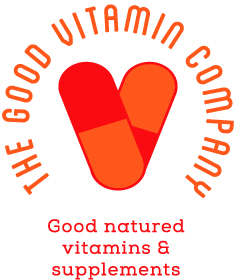Idiots Guide to Heart Health
Heart diseases are now one of the leading health concerns worldwide. Approximately 1 in 14 people worldwide are currently surviving heart and circulatory diseases. Even more concerning is that this number is rising at an alarming rate due to changing lifestyles and an ageing population.
Read on to learn about cardiovascular health and the latest trends.
Key Metrics for Heart Health
The blood in your body contains different fatty substances called lipids that store energy and protect your vital organs. Cholesterol and triglycerides are the two main lipids in your bloodstream.
Although both lipids are important for you to function properly, having too much of them in your blood can cause buildup in your arteries and blood vessels, increasing the risk of multiple cardiovascular problems. Hence, healthcare providers use a lipid profile test to measure the level of fatty substances in your blood and monitor your risk of developing cardiovascular diseases like coronary heart disease, stroke, and heart attack.
Lipid Profile Test
A lipid panel test provides four main measurements from a blood sample:
Low-Density Lipoprotein (LDL) Cholesterol: Lipoproteins are combined particles of proteins and fatty substances like cholesterol and triglycerides. Fatty substances can't travel in the blood on their own. Hence, proteins serve as vehicles that combine with and transport fats to various cells in your body through blood.
Low-density lipoproteins are particles that contain a large amount of fat and a low amount of proteins. These particles can build up in the arteries and blood vessels, narrowing them too much. This restricts the blood flow to and from the heart, leading to various heart diseases. Moreover, the buildup of LDL sometimes ruptures, leading to major heart problems.
High-Density Lipoprotein (HDL) Cholesterol: High-density lipoproteins reduce cholesterol buildup in your arteries. How? They absorb cholesterol into the blood and carry it back to the liver from other parts of your body. The liver then flushes away that cholesterol from the body. Hence, high levels of lipoproteins reduce your risk of heart disease.
Total Cholesterol: This is your blood's total or overall cholesterol content. The total cholesterol level combines very low, low, and high-density lipoprotein levels.
Triglycerides: Excess triglycerides in the blood mean you eat more calories than you burn. This can lead to various cardiovascular problems and pancreatic inflammation.
Key Acceptable Levels of Lipid Profile Test
The four major elements of the lipid panel test are measured in milligrams per deciliter of blood (mg/dL) or millimoles per liter (mmol/L. The optimal results of a lipid profile test are as follows:
- High-density lipoprotein (HDL) cholesterol: Above 60 mg/dL.
- Low-density lipoprotein (LDL) cholesterol: Below 100 mg/dL (For people who have diabetes: Below 70 mg/dL).
- Total cholesterol: Below 200 mg/dL.
- Triglycerides: Below 150 mg/dL.
If cholesterol and triglyceride levels are higher or lower than the normal target range, they indicate borderline, intermediate, or high-risk for heart problems.
However, having higher than normal levels of total cholesterol, LDL, and triglycerides and/or lower levels of HDL doesn't necessarily indicate you have a heart problem.
Factors determining Your Risk for Cardiovascular Problems
People differ from each other. A healthy cholesterol and triglyceride range for your body may depend on numerous factors, including age, gender, current medical conditions, and medical history.
Besides the factors mentioned above, genetic profiles also significantly impact lipid profiles. For example, an Asian heart health profile differs considerably from that of a white European/American.
Asians tend to have lower LDL cholesterol levels, considered the "bad" cholesterol, but they also tend to have higher triglycerides. Plus, they tend to have a higher prevalence of factors that increase the risk of heart disease, like increased blood pressure, high blood sugar, and excess body fat around the waist.
The prevalence of hypertension is also higher in Asian populations, which can increase the risk of heart disease. Furthermore, studies have shown that some medications used to treat heart disease may not be as effective in Asians, and some may even be linked with an increased risk of side effects. Conclusively, heart health should be dealt with according to multiple demographic and health-related factors.
Reducing your Risk For Heart Diseases
The Trend of Lowering the Threshold for Statin Use
Statins are a group of drugs used to lower the cholesterol level in the blood. They block a substance your body requires to produce cholesterol. Doctors prescribe them only if your risk factors for heart problems make you a good candidate for statin use.
The risk for heart disease and stroke increases due to tobacco use, lack of exercise, high blood pressure, obesity, family history of heart disease, diabetes, old age, etc. Also, if you have had a heart attack in the past, a statin may be helpful even if you don't have high cholesterol.
In 2014, the National Institute for Health and Care Excellence (NICE) lowered the threshold for initiating statins from a 10-year risk of cardiovascular disease (CVD) of 20% to 10% (Clinical Guideline 181), making 4.5 million extra people eligible for treatment. Basically, statins are now being used as a means of primary prevention in people at low cardiovascular risk.
Although statins have proven to reduce the overall risk of heart disease for a large population, they come with significant limitations. The first and foremost limitation is that statin usage is for life. If a statin helps you lower your cholesterol over time, you must stay on it long-term to keep it that way. Your cholesterol levels will most likely rise again if you stop taking statins. Hence, nutrition is the best way to maintain your heart health.
Nutrition Early On - The Best Way to Maintain Heart Health
Instead of relying on medicines that may come with multiple side effects, it is much better to adopt a heart-healthy diet early on. Here are some nutritional elements that can keep your heart healthy.
Red Yeast Rice
Red yeast rice consists of monacolins similar to the active ingredient in the prescription medication, lovastatin. Lovastatin is a cholesterol-lowering drug that belongs to the statin class of drugs, and it's used to lower LDL cholesterol (bad cholesterol) levels. Some preliminary studies have suggested that taking red yeast rice supplements may help lower cholesterol levels, but more research is needed to confirm these findings.
Niacin
Niacin, also called vitamin B3, is a water-soluble vitamin vital for various bodily functions, like the metabolism of food and the production of hormones. Some studies suggest niacin supplements may help improve heart health by raising high-density lipoprotein (HDL) cholesterol levels, also known as "good" cholesterol. HDL cholesterol helps remove low-density lipoprotein (LDL) cholesterol, also known as "bad" cholesterol, from the blood, which can help lower the risk of heart disease.
Omega-3 Fatty Acids
Omega-3 fatty acids, specifically eicosapentaenoic acid (EPA) and docosahexaenoic acid (DHA), are a type of polyunsaturated fat known to have several benefits for heart health.
Some studies have found that consuming omega-3 fatty acids can help lower the risk of heart disease by reducing inflammation in the body, consequently lowering blood pressure and heart rate and improving the health of blood vessels. They also reduce the risk of blood clots and improve the balance of cholesterol in the body, keeping your heart healthy.
The best sources of omega-3 fatty acids are fatty fish such as salmon, mackerel, sardines, and herring, as well as fish oil supplements and some plant sources like flaxseed, chia seeds, and walnuts.
Plant Sterols
Plant sterols are compounds found in plants that are structurally similar to cholesterol.
When consumed, they compete with cholesterol for absorption in the small intestine. Consequently, less cholesterol is absorbed into the bloodstream, which leads to lower cholesterol levels in the body.
Plant sterols are present in many foods, but they are also available as dietary supplements and can be added to foods like margarine, orange juice, and yogurt.
Coenzyme Q10 (CoQ10)
Another crucial element for heart health is Coenzyme Q10 (CoQ10). It is an antioxidant that your body produces naturally for converting food into energy required for cell growth and maintenance.
Coenzyme Q10 (CoQ10) levels in your body may decrease with age or the prevalence of some medical conditions, including heart disease. It is found in fish, meat, and nuts - but the amount of CoQ10 in these foods may not be enough to raise the CoQ10 levels in your body significantly. This is where a CoQ10 supplement may help.
When combined with other medications, CoQ10 supplements have been known to improve some symptoms of heart conditions by improving energy production in cells and preventing blood clot formation.
CoQ10 by The Good Vitamin Company provides the best vitamins for the heart and circulation. It helps you maintain healthy cholesterol, boost energy levels, and support healthy physical performance. It comes in a bottle of 30 soft gels; each provides 100 mg of CoQ10. You can take one soft gel daily to keep your heart healthy, preferably after every meal or as prescribed by a doctor.

